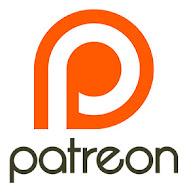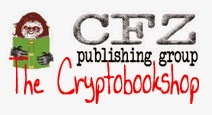 Tim Matthews is one of my best friends, and also - coincidentally - one of the most controversial figures in contemporary forteana. He has been involved with the CFZ for nearly a decade now, raising eyebrows wherever he goes.
Tim Matthews is one of my best friends, and also - coincidentally - one of the most controversial figures in contemporary forteana. He has been involved with the CFZ for nearly a decade now, raising eyebrows wherever he goes.Everybody's bothered about the environment, right? You sit there in a massive queue of holiday traffic bemoaning car drivers and how there are too many of them (wrong type of drivers in the wrong type of cars) and then you visit some rare, ancient or historical site and further damage it for years to come. We want clean water but shove tonnes of pollutants down our sinks not to mention using a host of cleaning products that certainly damage our planet over a period of years.
Harsh? I should say so and we're all guilty of it.
Sometimes, to ease our consciences, we join one of the "make you feel better about it" organisations like Greenpeace or the WWF. And, sometimes, these organsations actually do some good. For example, as I write, pressure from the WWF and allied conservation groups has managed to get Russian oil and gas engineers to stop seismic testing underwater as it affects the gray whale, a critically endangered species.
The Sakhalin Energy company, backed by Shell and Gazprom, has agreed to stop working for a brief time, to give the remaining 35 females a chance to breed, in an area just off the Sakhalin shelf by Piltun bay. Mind you, BP and Exxon still want their workers to operate in the area and they have not agreed any deal with environmentalists yet.
Recently, I was in a bookshop with a friend of mine and she said, "I love looking in old natural history books but the shame of it is when you look at the listing they're often full of animals that are extinct or serious danger."
We often sit idly by, wondering what we can do. Surely we can do more than send twenty quid to some campaigning group? Wouldn't we prefer to do something by ourselves? Imagine all the energy and effort required to make a small impact on big business. The first thing surely must be to get our children and immediate families a little more interested in natural history. What is happening in their own gardens, what can be done to encourage insects and other animals into them, what easy steps can be taken to limit their own impact on the world around them. Some of it is easy and can be done today in the house you live and some of it is down to politicians and big companies in whom we can only have marginal trust.
It is up to you to decide what to do but the best ever slogan, and call to action, must surely be, think globally, act locally. How the CFZ fits into this remains to be seen but I suspect that we all know what we should do.


















No comments:
Post a Comment